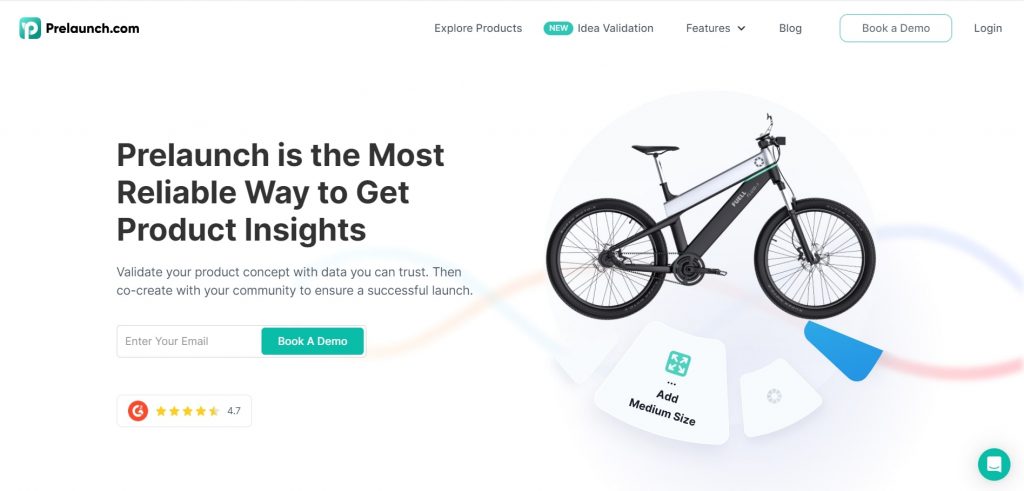Research is the lifeline of informed decision-making for businesses. From understanding customer preferences to evaluating product concepts, research methods carve the pathways for strategic trajectories. One traditional methodology often lauded for insight generation is the focus group.
However, this isn’t about patting the old guard on the back – it’s about highlighting crucial shadows that traditional focus groups can cast if not understood and properly accounted for. For those in market research, it’s a must to grasp the complexities and trade-offs that each method, including the pros and cons of focus groups.
Focus groups, a qualitative data collection method where a group of participants are asked set questions and engaged in a facilitated discussion, have seen a resurgence in popularity. This method, popularized by market research pioneer Robert K. Merton, has brought companies closer to their target market voices. Yet, beneath its polished veneer of stimulating discussion and candid consumer talk lays a complex set of limitations of focus groups in qualitative research that could affect the integrity and ROI of the results.
Hitting Where It Hurts: The Disadvantages of Focus Groups
1. Expensive
In an era of globalization, where brands have their sights set on international dominion, traditional focus groups can quickly become cost-prohibitive. The expenses unfurl their tapestry in multiple layers:
Recruitment Costs
Finding and incentivizing the right participants, especially those from specific demographics, can be a challenging and wallet-thinning endeavor. Think niche segments, rare professionals, or ultra-high-net-worth individuals that a brand might target but are tremendously hard to assemble.
Location and Logistics
From renting high-quality spaces to providing top-shelf catering, the focus group environment must be conducive to open and comfortable discussion. Add in the fees for skilled moderators who can adeptly handle group dynamics, and the overhead racks up.
Global Considerations
For global players, the cost of running concurrent focus groups across different countries, not to mention potential translation expenses, swells the budget in uncommon multiples. Each group needs to possess its local flavor, resonant with the customs and consumer language of that region.
2. Time-Consuming Process
Time is money, and in the fast-paced business ecosystem, the languid pace of traditional focus groups can be a thorny issue. Delays can seep from various phases of the process:
Recruitment and Scheduling
Finding willing and available participants can put a dent in the timeline. Keep in mind the various time zones and the intricate dance of participant schedules that need to align for a successful session.
Conducting the Session
Even when the stars align, the actual session takes time. Allowing for meaningful discussion means prioritizing depth over expeditiousness, which could mean extended discussions that bleed into resource-heavy overtime.
Data Analysis
The recorded dialogues of focus groups necessitate transcription and subsequent analysis, which can be both time-consuming and fraught with subjectivity in interpretation.
3. Prone to Bias
Human nature is to bias as the Sun is to shine, and focus groups are no exception. They are an ecosystem where biases can ripple in multiple forms:
Social Desirability Bias
Participants may withhold their genuine feelings and instead offer answers that they believe will garner social approval. This tendency to present oneself in a favorable light can color the results in an overly positive hue, particularly when perceived subject matter experts are involved.
Groupthink and Dominance
In any social setting, there are influencers, and focus groups are no different. Dominant personalities can lead the conversation astray from the broader objective, coercing more malleable participants to adopt their viewpoints.
Moderator Bias
The moderator, the beacon of group discussion, can – albeit inadvertently – nudge participants towards certain responses through biased questioning or subtle body language, affecting the dynamics and outcomes.
4. Lack of Flexibility
It’s akin to setting sail without a rudder. Traditional focus groups offer little in the way of course correction once the voyage has commenced:
Limited Opportunity for Course Correction
Should the scope or objectives of the group session not fully align with the emerging insights, there’s little room for adjustment. The structured nature of focus groups can stymie the organic exploration of tangential, yet potentially vital, topics.
Small Sample Size
For most focus groups, the sample size is small, which – while suitable for qualitative insights – offers little statistically significant weight or the ability to generalize findings to broader populations without the added complexity of representative sampling.
Difficulty in Adapting to New Information
Emergent or post-session evolutions, such as industry shifts or consumer trends, are hard to adapt to once the data is collected. The method’s inflexibility can thus limit research’s relevance over time.
5. Time-Lag in Reporting
The slow churn of data from a focus group to actionable insights can be a thorn in the side of strategic move-making. The process obstructs timely reaction to the market pulse:
Data Transcription and Coding
The manual labor involved in transcribing and coding group discussions can delay data availability and, consequently, insights.
Analysis and Reporting
Interpreting the data and weaving it into reports that transcend the raw findings into actionable prescriptive guidance is a nuanced and intricate process that demands time and expertise, risking the decay of relevance before insights reach decision-makers.
Delays in Decision-Making
A graph plotting time-to-insight against the cost of time value would invariably spike at the juncture where insight delay impacts decision-making. This delay can not only lead to missed market windows but can also stifle innovation and responsiveness.
Two Alternatives to Focus Groups
In-depth Interviews (IDIs)
In-depth interviews (IDIs) offer a valuable alternative to focus groups, allowing you to delve deeper into individual experiences and perspectives. Here’s how you can conduct IDIs for product validation:
1. Define Your Research Objectives:
- What specific information do you need from potential customers?
- Are you trying to understand needs, pain points, or usage habits?
2. Recruit Participants:
- Identify your target audience and develop screening questions to select relevant participants.
- Aim for a diverse range of voices to capture a well-rounded perspective.
3. Develop an Interview Guide:
- Craft open-ended questions that encourage detailed responses.
- Include a mix of core questions and follow-up probes to explore specific points.
- Structure the guide logically, flowing from general to specific topics.
4. Conduct the Interview:
- Choose a comfortable setting that fosters open communication (e.g., online video call, quiet coffee shop).
- Establish rapport with the participant, explaining the purpose and confidentiality of the interview.
- Actively listen and ask follow-up questions to gain rich insights.
- Take detailed notes, including nonverbal cues that can reveal deeper meaning.
5. Analyze the Data:
- Identify recurring themes and patterns across interviews.
- Look for both positive and negative feedback on your product idea.
- Use the insights to refine your product concept and target audience.
By following these steps, you can leverage in-depth interviews as a powerful tool for product validation, gathering valuable insights from potential customers to inform your product development process.
Online Communities
Online communities provide a dynamic platform to gather ongoing feedback from a dedicated group of potential customers. Here’s how to leverage online communities for product validation:
1. Define Your Research Objectives:
- What kind of feedback are you seeking? (e.g., Initial product concept validation, feature prioritization, ongoing usage insights)
- How will the community discussions inform your product development roadmap?
2. Choose a Platform:
- Select a platform suitable for your target audience and research goals. Options include online forums, social media groups, or dedicated research communities managed by market research firms.
3. Recruit Participants:
- Craft clear recruitment criteria to attract potential customers with relevant interests and demographics.
- Utilize social media advertising, online communities catering to your target audience, or offer incentives to participate.
4. Foster Community Engagement:
- Establish clear guidelines and expectations for participation, promoting respectful and constructive discussions.
- Pose engaging questions and prompts to spark discussions about your product concept, prototypes, or even competitor offerings.
- Actively participate in discussions, providing insights and responding to questions to maintain momentum.
- Offer incentives like early access to product features or rewards for valuable contributions to keep members engaged.
5. Analyze and Leverage Insights:
- Monitor discussions regularly, identifying recurring themes, pain points, and emerging trends.
- Use sentiment analysis tools (if applicable) to gauge overall community perception of your product.
- Conduct polls and surveys within the community to gather quantitative data alongside qualitative discussions.
- Translate community insights into actionable steps for product development and refinement.
Advantages of Online Communities over Focus Groups:
- Cost-Effectiveness: Lower cost compared to in-person focus groups, allowing for extended data collection.
- Longitudinal Insights: Enables gathering feedback over time, capturing evolving needs and preferences.
- Diverse Perspectives: Provides access to a broader range of voices from a geographically dispersed audience.
- Organic Interaction: Encourages natural conversations and unprompted feedback in a familiar online environment.
By strategically utilizing online communities, you can gain valuable and ongoing customer insights to inform your product development process. Remember, an engaged online community can become a powerful asset, providing a constant pulse on your target audience’s needs and preferences.
Focus Groups vs Prelaunch.com Co-Creation
As we’ve mentioned above one of the chief downsides of traditional focus groups is that people are incentivized to participate in the discussion, subjecting them to bias. On Prelaunch.com, they pay the brands money (by reserving a discount price) and are more inclined to provide genuine feedback. Why? Because they are authentically interested in getting a great product.
In focus groups, the question always remains: are the participants actually your final buyers? If not, their answers are not trustworthy enough. On Prelaunch.com, they already have skin in the game, and hence provide much more credible and reliable answers. The group providing feedback are in essence already validated as customers.

How Prelaunch.com Goes Beyond Traditional Focus Groups
Prelaunch.com incorporates the best of all worlds by combining in-depth interviews, online communities and a new (more targeted) version of traditional focus groups to give you the best insights possible. Here’s what we mean by best:
- Accuracy: The platform filters out people who are not relevant (e.g., past customers, competitor customers, paid participants, etc.) who aren’t incentivized to give useful and honest responses. Instead, Prelaunch.com first asks people to pay a deposit to confirm their interest in buying a given product and then calls them to share their opinions.
- Expediency: Brands who use Prelaunch.com can have 10 interviews set up and analyzed by within a day or two.
- Flexibility: The platform lets you define your segments and set up your questions (whether for big groups or for one-on-one sessions, follow-up calls, long or short in format).
- Affordability: Prelaunch.com doesn’t require any logistics, rental spaces where you would have to conduct a traditional focus group or moderator/participant recruitment, etc.
- Simplicity and Comprehensiveness: You don’t need 10 tools, a market research team, months of planning, etc.
Instead, your concept validation efforts can be up and running in a few days. This will gather quantitative data about your product’s performance, deep qualitative data about your future customers and their opinions, and focus groups. Using the platform is easy and does not require a master’s degree in marketing or research.
- Continuous: Finally, the platform allows for follow-up interviews (a major challenge with traditional focus groups). Prelaunch.com is set up so you can send out additional surveys or change your product and revalidate it.
- Global Accessibilty: Prelaunch.com lets you reach worldwide audiences and conduct interviews with them the same day.
How Prelaunch.com Co-Creation Works
Here’s how to leverage Prelaunch.com for effective product validation:
1. Define Your Product Idea:
- Clearly articulate your product concept, its core features, and target audience.
- Consider what aspects of the idea you want validated (e.g., overall concept, specific features, pricing).
2. Craft a Compelling Landing Page:
- Prelaunch allows you to create a mock landing page showcasing your product idea.
- Use clear visuals, concise descriptions, and highlight the problem your product solves.
- Emphasize the value proposition and benefits for your target audience.
3. Set Up Pre-orders or Reservations:
- Prelaunch offers a reservation system where potential customers can “pre-order” your product with a refundable deposit.
- Set a realistic deposit amount that incentivizes commitment without being a barrier.
- This gauges genuine interest and helps assess potential demand early on.
4. A/B Test Different Elements:
- Prelaunch allows A/B testing of various aspects of your landing page, such as headlines, pricing options, or feature presentations.
- This helps you understand what resonates most with your target audience and optimize your product concept before development.
5. Gather Feedback Through Surveys and Polls:
- Prelaunch.com offers built-in tools to collect feedback from potential customers through surveys and polls.
- Craft insightful questions to gather specific data on user preferences, willingness to pay, and pain points related to the product category.
Advantages of Prelaunch over Focus Groups:
- Quantitative Data: Prelaunch provides real actions (reservations) alongside qualitative feedback (surveys), offering a more concrete validation measure.
- Scalability: Reach a wider audience compared to focus groups, gaining insights from a more diverse pool of potential customers.
- Cost-Effective: Generally lower cost compared to recruiting and conducting focus groups.
- Faster Validation: Get quicker feedback on your product concept compared to traditional methods.
By leveraging Prelaunch’s features strategically, you can validate your product concept with real customer interactions and data. This allows you to refine your idea, identify potential issues early on, and enter the development phase with greater confidence.
Conclusion: Navigating the Disadvantages of Traditional Focus Groups
As market researchers, analysts, and entrepreneurs, it’s crucial to understand focus group limitations. While traditional focus groups offer valuable insights, it’s essential to approach them consciously and explore alternative research methods.
Consider modern research tools like online communities and AI-driven analytics for nuanced data solutions. When using focus groups, ensure precision in deployment, moderator neutrality, and efficient data analysis methods. Continuous method evaluation and staying updated on market trends are key for effective research practices. Embrace the evolution of research methods to drive visionary strategies through a mature critique of traditional approaches like focus groups.
FAQ
What makes a bad focus group?
A bad focus group can be characterized by a lack of diversity in participants, a biased moderator, or poor facilitation. It may also result in unrepresentative data if the sample size is too small or the recruitment process is not thorough. Additionally, if the discussion lacks depth and meaningful insights are not gathered, it can be considered a bad focus group. Other factors that can contribute to a bad focus group include a poorly designed discussion guide, lack of time management, and inadequate analysis of the data collected.
When should and shouldn’t you not use a focus group?
A focus group may not be the most suitable research method in certain situations, such as:
- When you need to gather quantitative data rather than qualitative insights.
- When the topic is sensitive and requires one-on-one interactions for participants to feel comfortable sharing their opinions.
- When your target audience is geographically dispersed, making it challenging to gather them in one physical location.
- When you are short on time and need quick insights. Focus groups can take longer to organize and conduct compared to other research methods.
Are focus groups better in person?
While traditional focus groups are typically conducted in person, there has been a shift towards online focus groups due to the ease of recruitment and data collection. Both have their own advantages and disadvantages of focus groups in research, so it ultimately depends on the research objectives and target audience.
In-person focus groups may offer a more personal and interactive experience, but online focus groups can reach a wider and more diverse pool of participants. It’s important to consider the research goals and disadvantages of focus groups before determining which format may be better suited for a specific study. In some cases, a hybrid approach that combines both formats may be most effective.




